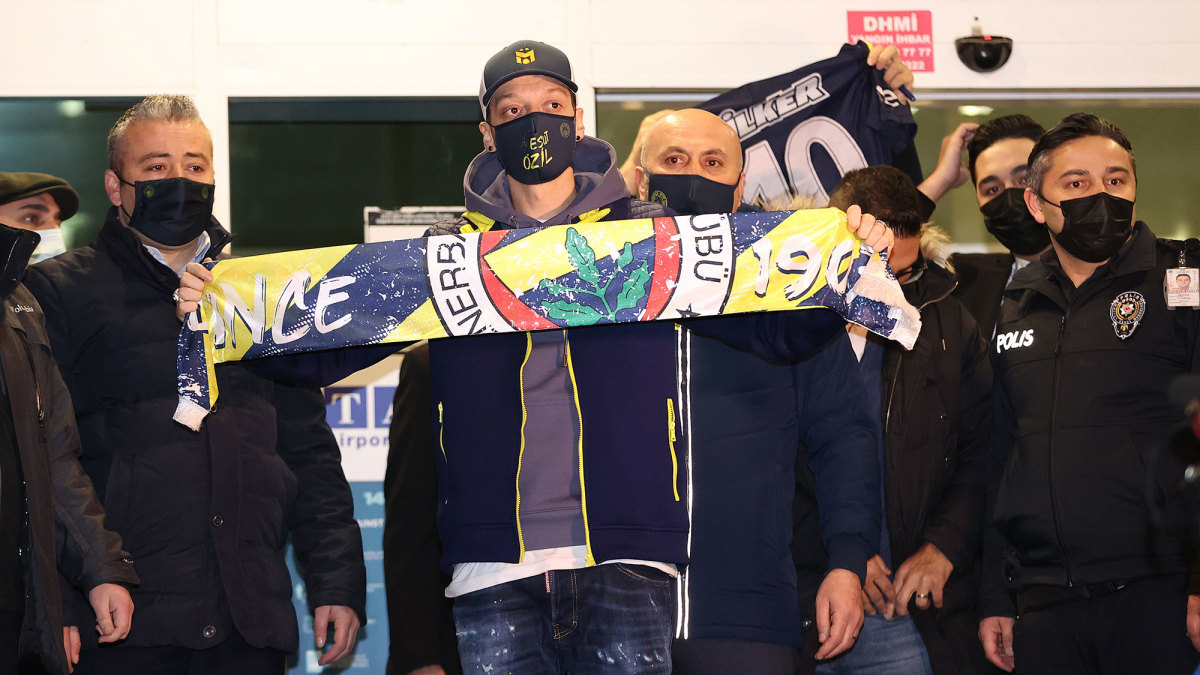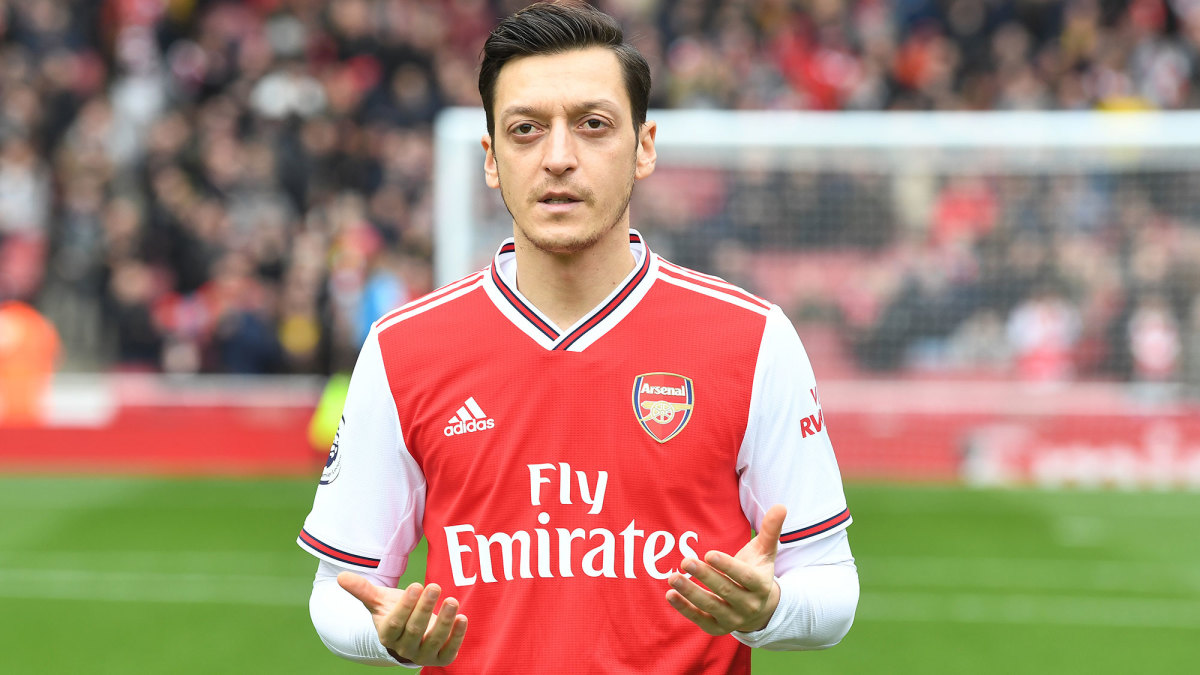Mesut Ozil's Imminent Fenerbahce Move Lifts Weight After Divisive Arsenal Spell

Mesut Ozil arrived at the Emirates in September 2013 to great fanfare. He was 24, had already won a league title with Real Madrid and impressed at a World Cup. He had cost a reported $55 million. He was a symbol of Arsenal’s return to the big time after the years of retrenchment forced by the stadium move. He's leaving for Fenerbahce, where he arrived Sunday and will sign following the official termination of his Arsenal contract, having not played since March 7 of last year as perhaps the most divisive player in Arsenal’s history.
At his best, Ozil was a joy. He had a grace and a remarkable capacity to find moments of stillness on the pitch. In 2015-16, he registered 19 assists, one shy of Thierry Henry's Premier League record. He helped Arsenal to three FA Cup titles, ending a trophy drought that had endured since 2005. But he also had a languid style that led to allegations of laziness. And at times he didn’t track as diligently as he might have done.
He played regularly for Jose Mourinho at Real Madrid, which suggests the idea he couldn’t be relied upon is flawed. And yet as the game became more and more about pressing and intensity, Ozil came to seem increasingly anachronistic–and not just at Arsenal. Having won the World Cup in 2014, he had a dismal tournament four years later, as Germany went out in the group stage in 2018. He claimed he had been singled out for criticism because of his Turkish heritage, and tensions were heightened further when Turkey’s nationalist president, Recep Tayyip Erdogan, served as best man at Ozil’s wedding in 2019, at a time when German-Turkish relations were severely frayed.
At Arsenal, matters came to a head that same year. Ozil was dropped by Unai Emery, but recalled after his dismissal by interim manager Freddie Ljungberg. Then, in December 2019, Ozil condemned the Chinese persecution of Uighurs in the province of Xinjiang in an Instagram post and criticized Muslims for not speaking out more strongly about the issue.
Arsenal immediately distanced itself from the comments, stressing they represented the personal views of the player and not the opinion of the club. Arsenal had not made a point of its supposed apoliticality after Hector Bellerin had attacked British Prime Minister Boris Johnson a few weeks earlier. Arsenal’s game against Manchester City was taken off Chinese television schedules, and it was hard not to conclude that its statement was intended to protect its business interests.

The rift between the two parties was already there, but the issue clearly widened it. Ozil did, though, return to the team under Mikel Arteta until the shutdown for the pandemic. Precisely what happened next is disputed. Ozil was reluctant to accept the club-wide 12.5% pay cut, although he insists he was not, as has been claimed, the only player to express reservations. Accounts differ as well as to whether he was against the cut per se or whether he wanted clarification on what the saved money would be used for.
When Arsenal shed 55 staff members in August, including a number in the recruitment department–something that seemed to enhance the influence of agent Kia Joorabchian–there were plenty who saw vindication for Ozil’s doubts. Also let go was Jerry Quy, who, among other jobs, had played Arsenal’s mascot, Gunnersaurus, for 27 years. Ozil offered to pay his wages. There have been a number of social media posts since in which he has appeared to be openly trolling the club.

As Arsenal’s form dipped in the autumn and it struggled desperately for creativity, there have been calls for Ozil to be recalled. He was, after all, the club’s highest-paid player, on $475,000 a week. Arteta resisted, though, blaming himself for not being able to find a way to unlock Ozil and insisting his decision to freeze him out had been taken on purely sporting grounds.
Certainly there are football reasons, as 18 appearances last season brought just one goal and two assists. Ball regains last season were at 1.2 per game–down from the 1.5-2.0 that used to be standard for Ozil, but far from disastrous. He does not, though, feel like a natural fit for Arteta’s preferred way of playing. It’s easy to see why he would struggle for first-team action. Whether that justified leaving him out entirely though is another matter. In this compressed season, rotation is more important than ever. When Arsenal was struggling for goals, could he not have been an option to break games open from the bench? That Ozil was perceived as disruptive is clear; what’s not is why.
And so, having arrived amid glory, Ozil will leave with a sense of relief, a weight lifted for both sides. Arsenal will be delighted to be rid of a controversial drain on its resources, while Ozil will join the team he claims to have supported as a boy. He is still only 32. There is a career there to be resurrected.
